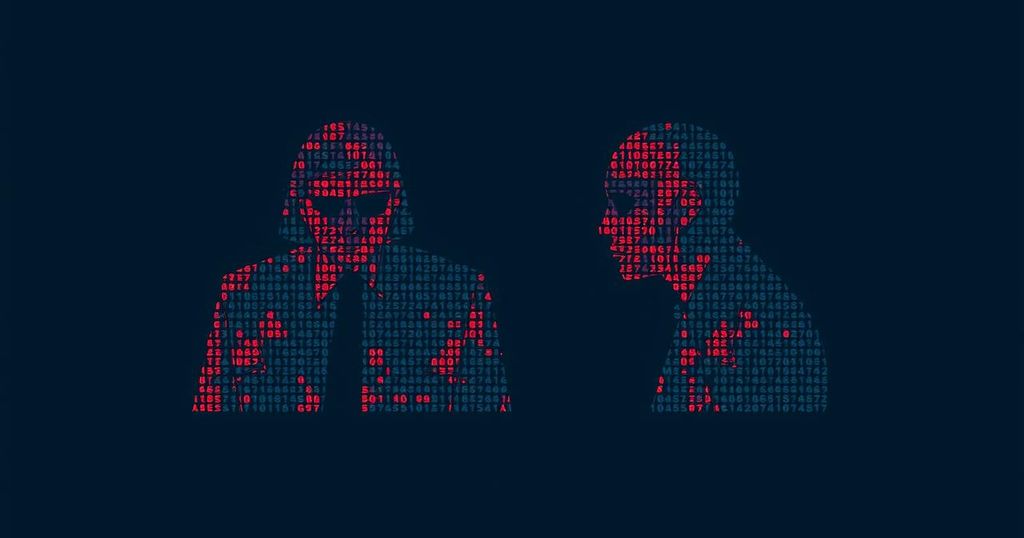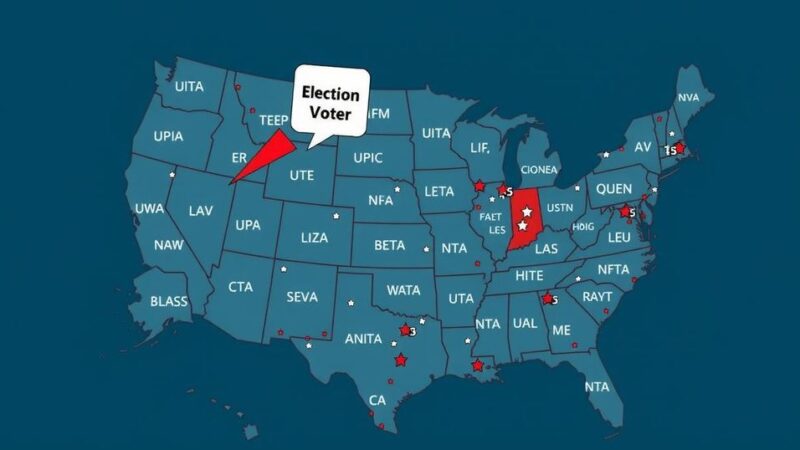U.S. intelligence warns of likely insider threats to election integrity in the 2024 cycle, citing increased involvement of election deniers and armed groups. The bulletin outlines potential red flags and emphasizes the necessity for vigilance among election workers and law enforcement.
A memorandum circulated by U.S. intelligence indicates that election centers across the country face a high likelihood of insider threats in the lead-up to the 2024 elections. These potential threats are defined by the Department of Homeland Security as individuals who may exploit their authorized access to harm the election process, whether intentionally or unintentionally. This warning was included in a situational awareness bulletin released by the Colorado Information Analysis Center, which integrates intelligence from multiple governmental levels to provide local law enforcement with updated threat assessments. Kevin Klein, director of Colorado’s Division of Homeland Security and Emergencies Management, acknowledged to WIRED that the threat landscape is more precarious than in past election cycles. He stated, “The entire threat picture is elevated for this election,” emphasizing that the involvement of numerous personnel in the electoral process raises the risk of insider threats. The bulletin highlights specific behaviors that could indicate insider threats, such as unauthorized access to voting centers, tampering with ballots, and deactivation of security systems. It has been suggested that increased concern stems from the infiltration of election workers by individuals aligned with conspiracy theories surrounding the electoral process, many with connections to former President Trump’s political circle. The rise of so-called “election integrity” groups reinforces this concern, as many aimed to recruit loyalists for both poll watching and poll working roles, potentially compromising election integrity. Recent incidents further exemplify this growing tension, illustrated by partisan poll watchers in Glendale, Wisconsin, who disrupted absentee ballot processes. Similarly, allegations arose regarding former Proud Boys members seeking election worker positions. This situation has led to heightened scrutiny upon election workers, many of whom have reported threats to their safety and have experienced significant turnover. The Justice Department, recognizing the severity of these threats, established the “Election Threats Task Force” in 2021. In addition to insider threats, U.S. intelligence agencies have been monitoring extremist plots targeting electoral infrastructure. The emergence of cybercriminals, motivated by financial gain, highlights concerns over ransomware attacks disrupting election-related processes. A separate intelligence memo has acknowledged that such cybercriminal threats are perceived to be more impactful than those posed by foreign adversaries.
The underlying context of this report is the ongoing concern regarding the integrity of elections in the United States, particularly in light of the events surrounding the 2020 presidential election. Since that time, various movements and conspiracy theorists have surfaced, targeting electoral processes and seeking to install loyalists in key election-related roles. The heightened political climate has prompted a series of warnings from intelligence and security agencies about both insider and cyber threats, culminating in increased awareness and preemptive measures by state and local election officials in preparation for upcoming elections.
In summary, the recent U.S. intelligence memo underscores the critical challenges election centers will likely face, particularly from insider threats that could disrupt the electoral process. As election deniers embed themselves within the system, the concern regarding security has never been more pertinent. Election officials must remain vigilant, understand the warning signs of potential threats, and work collaboratively with law enforcement to mitigate risks to ensure fair and transparent elections.
Original Source: www.wired.com






